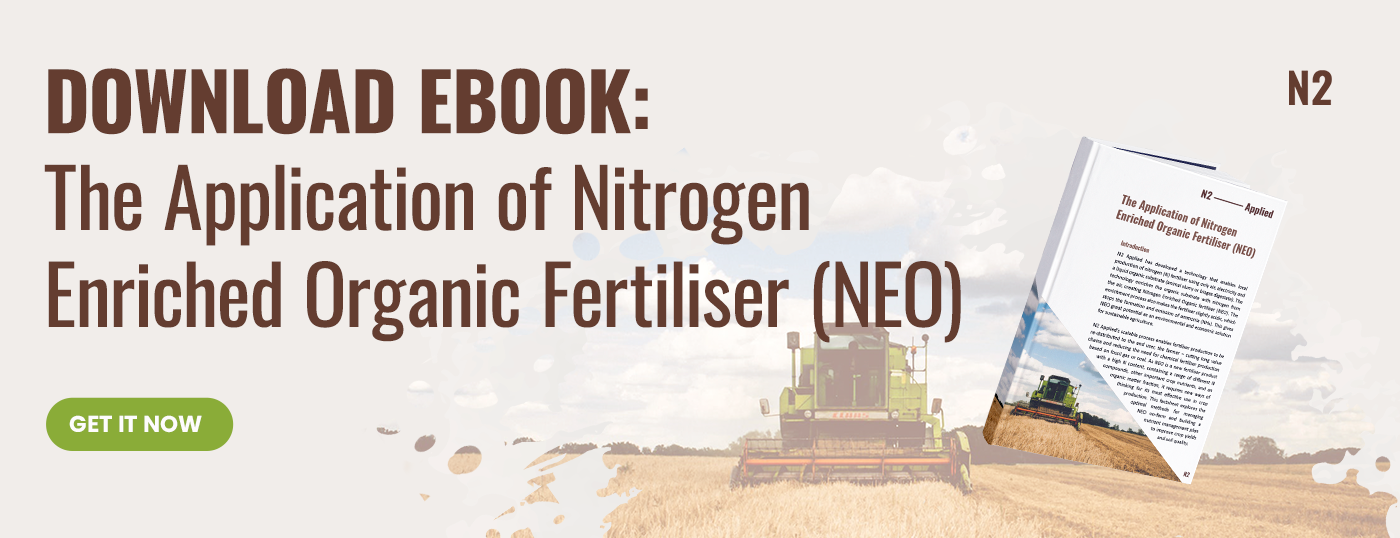N2 Applied has developed a technology that enables local production of nitrogen fertiliser using only air, electricity and a liquid organic substrate (livestock slurry or biogas digestate).
The technology enriches the organic substrate with nitrogen from the air, creating Nitrogen Enriched Organic fertiliser (NEO). NEO has a great potential as an environmental and economic solution for sustainable growth.
Production and Storage
NEO is produced in the N2 Unit, which is designed to nitrogen-enrich any liquid organic substrate intended for fertiliser use. Once treated, the resulting NEO can be stored without the risk of losing valuable ammoniacal nitrogen. The treatment also inhibits the formation of methane, which leads to a reduction in greenhouse gas emissions, and prevents the loss of organic carbon. These are major environmental benefits of the NEO fertiliser.
Application
Another major benefit of using NEO fertiliser is a more flexible application, both when it comes to weather conditions and time of application. Thus, treating your organic slurry or digestate with the N2 Unit provides more versatility compared to spreading untreated slurry or digestate. Additionally, as ammonia emissions from NEO are eliminated, application methods designed to reduce ammonia emissions are not necessary when applying NEO on the field.Thus, NEO can be spread with any kind of slurry equipment. This also ensures easy integration with existing equipment on-farm.
Results From Agronomic Trials
Additionally, the prevention of ammonia loss allows NEO to be applied later in the growing season, when crop uptake is at its highest and yield response will be greatest. To get access to statistics behind these results, download our factsheet on the application of NEO .
We have written a factsheet with a detailed overview of all the benefits listed above. If you would like to learn more about optimal methods for managing NEO on-farm, such as application timing and method, or how to build a nutrient management plan to improve your crop yield and soil quality, download our ebook now:




